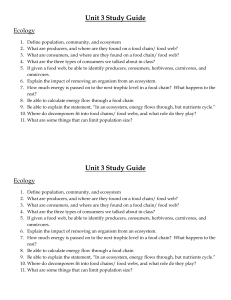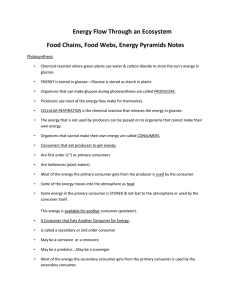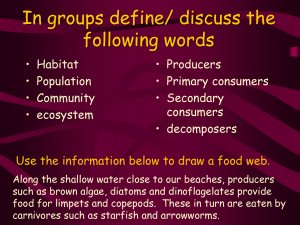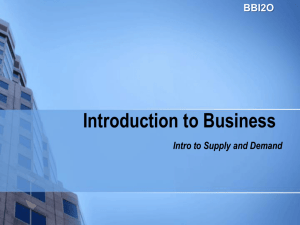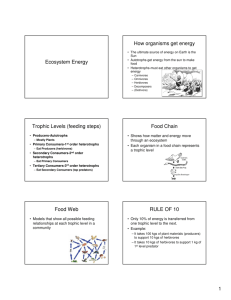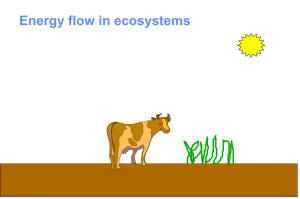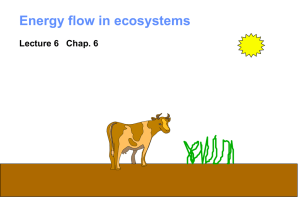ENERGY TRANSFER
advertisement
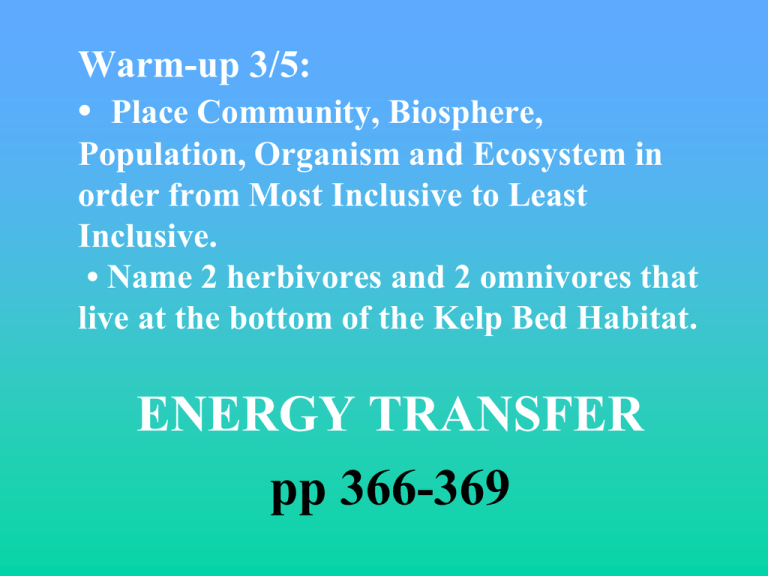
Warm-up 3/5: • Place Community, Biosphere, Population, Organism and Ecosystem in order from Most Inclusive to Least Inclusive. • Name 2 herbivores and 2 omnivores that live at the bottom of the Kelp Bed Habitat. ENERGY TRANSFER pp 366-369 • In an ecosystem energy flows: Sun autotrophs producers heterotrophs consumer PRODUCERS • • Can make their own food through photosynthesis or chemosynthesis Productivity: energy made by producers (after biological processes) available to consumers • • • gross primary productivity: rate at which producers capture energy in organic compounds. (Carbs, Fats, Proteins) biomass: the amount of organic material produced net primary productivity: the rate at which biomass accumulates (after some is used) CONSUMERS • get energy by eating other organisms - herbivores: eat producers - carnivores: eat other consumers - omnivores: eat producers and consumers - detritivores: feed on “garbage” - decomposers: breakdown big molecules to smaller molecules and recycle materials ENERGY TRANSFER • trophic level: position in a series of energy transfers • Only 10% of the total energy is passed onto the next trophic level 1. lost to biological processes 2. lost as heat 3. not enough at level above to support below FOOD CHAIN single pathway that traces of energy transfer Producer herbivore Producer 1˚ consumer small carnivore 2˚ large carnivore 3˚ FOOD WEB • interrelated food chains KEYSTONE SPECIES • most dominant species in the community • Dictates community structure • Demonstrated by removal of keystone species from community What would happen to the species richness if the keystone species is removed from the ecosystem? Homework • Worksheet • Tri fold Vocab: • • • • • Regulator Conformer Ecosystem Producers Consumers • • • • Biomass Detritivore Chemosynthesis Trophic Level
